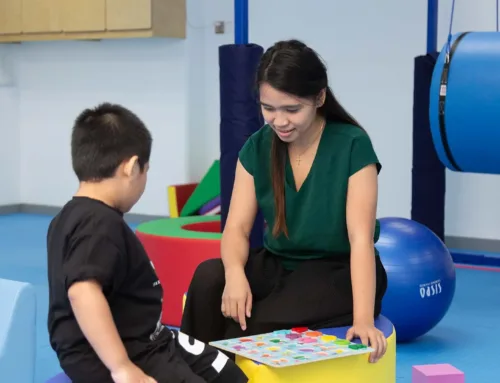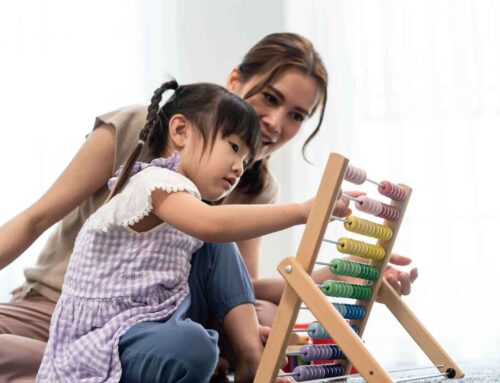If you’ve noticed your child frequently lining up toys, objects, or even household items, you might be wondering what it means. While lining things up can be a part of normal play, it can also be an early sign of autism when paired with other behaviors. At OrbRom Center in Phnom Penh, we help parents understand these signs through early developmental assessments and personalized support.
When Lining Up Toys Is Just Play
Young children explore their world through play. Lining up cars, blocks, or dolls can simply reflect creativity, organization, or curiosity about patterns and shapes. Many children go through phases of repetitive play that aren’t cause for concern.
However, the context matters. Ask yourself:
-
Does your child become upset if the line is disrupted?
-
Do they repeat this behavior for long periods without engaging socially?
-
Are they more focused on the order than imaginative play or interaction?
When lining up objects is rigid, obsessive, or accompanied by other signs of developmental delay, it may be worth a closer look.
Lining Up and Autism Spectrum Disorder (ASD)
For some children with autism, lining up toys is a way to create order in an overwhelming world. It can be a form of self-regulation or part of a restricted and repetitive behavior pattern—a core characteristic of ASD.
Common signs that may appear alongside lining up include:
-
Limited eye contact or social interaction
-
Delayed speech or language development
-
Preference for routines and resistance to change
-
Repetitive movements like flapping or spinning
At OrbRom Center, our team of specialists conducts comprehensive developmental assessments to determine whether these behaviors fall within typical development or indicate a need for early intervention.
The Importance of Early Screening in Phnom Penh
Early detection leads to better outcomes. If you live in Phnom Penh and are concerned about your child’s repetitive behaviors or social development, seeking a professional assessment can provide peace of mind—and a path forward.
At OrbRom Center, we use globally recognized tools and local cultural understanding to evaluate each child with care and accuracy. If autism or developmental delay is identified, we offer targeted support such as speech therapy, occupational therapy, or intensive intervention programs tailored to each child.
Not every child who lines up toys has autism, but it’s a behavior worth watching—especially when combined with other signs. If you’re in Phnom Penh and unsure what your child’s behavior means, OrbRom Center is here to help with expert developmental assessments and guidance.
We are the only Preschool specialized on children with special needs in PhnomPenh.
- Internationally qualified teachers
- Cambodia’s largest sensory room
- Outdoor swimming pool
- Covered outdoor playground📞 Phone: 077.455.993
Telegram Link: https://t.me/OrbRom







